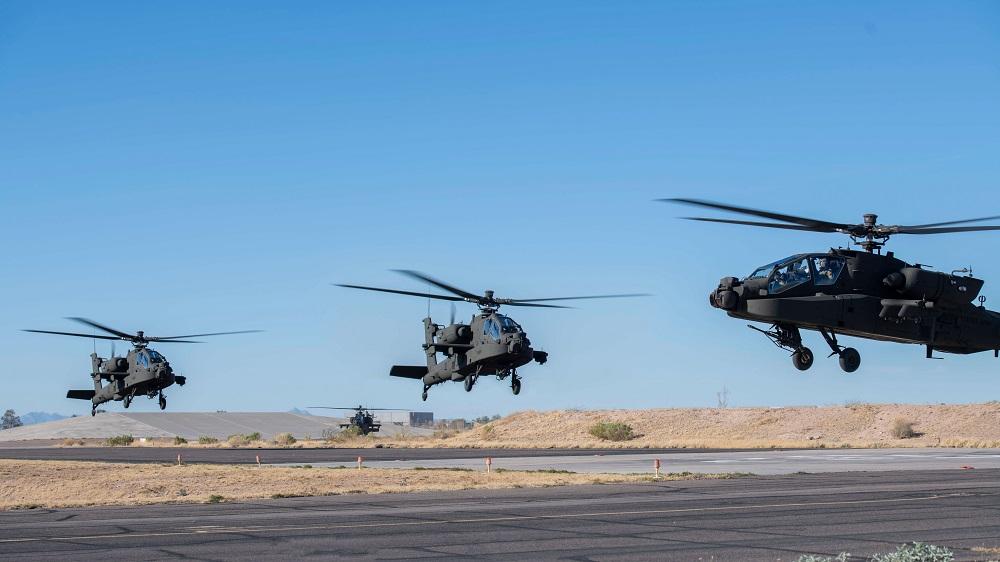
Sea state
On 1 July 2023, the Australian Submarine Agency was established to manage the delivery of the Royal Australian Navy’s planned fleet of eight nuclear-powered submarines from 2032. Led by Vice Admiral Jonathan Mead, the ASA will facilitate the industry partnerships needed for the project and liaise with the US and UK governments on placements and training of RAN and industry personnel. Its initial staff of 350 is expected to grow to more than 680 over the next year.
A new Russian corvette, the Rezkiy, tested its air defences on Wednesday in the Sea of Japan. The warship intercepted an anti-ship cruise missile fired by a friendly R-20 missile boat at a distance of 90 kilometres. The test followed a number of separate and unrelated transits of Japanese straits by Russian Navy and People’s Liberation Army Navy ships over the week, according to Japan’s Joint Staff Office of the Ministry of Defense.
Flight path
Lithuania’s defence ministry has announced its purchase of two NASAMS ground-based air-defence systems for Ukraine. The decision was made in response to Ukraine’s urgent request for assistance in strengthening its air defences. Set to be delivered within three months, the systems are seen as a significant and timely contribution to safeguarding Ukrainian airspace and protecting lives. Lithuania will facilitate the delivery while Norway will provide maintenance equipment. The donation also includes an additional 10 M113 armoured personnel carriers.
The US State Department has approved the proposed sale of 24 F-35 Lightning II aircraft, along with munitions and related equipment, to the Czech Republic to enhance its defence capabilities, support NATO operations, and maintain regional security. The deal aligns with a security agreement signed by the US and Czech governments that underlined a Czech commitment to procuring advanced fifth-generation fighter jets. If the sale proceeds, the Czech Republic will become the F-35 program’s 10th customer.
Rapid fire
British multinational arms company BAE Systems has tested crewed–uncrewed teaming requirements on its 8×8 amphibious combat vehicle (ACV) C4UAS. The ACV C4UAS was connected with the Israel Aerospace Industries Elta Systems Rex MK II Unmanned Infantry Combat Support System. The trial demonstrated how collaboration between crewed vehicles and autonomous drones can improve situational awareness, support mission success and reduce risk to infantry. The successful integration of the technology represents a leap forward in mechanised warfare.
Australia will spend $700 million on upgrading its airbase in Townsville to accommodate a fleet of 29 AH-64E Apache helicopters that will arrive from 2025. The Australian Army’s 1st Aviation Regiment will steadily relocate to Townsville, as it continues to operate its Tiger armed reconnaissance helicopters from Darwin until their planned withdrawal from service in 2028. The US expects the AH-64E to serve as its primary attack helicopter into the 2060s, and the shared platform should allow for greater interoperability between the US and Australia over the decades ahead.
Final frontier
The Australian government has announced that the National Space Mission for Earth Observation program will be scrapped. The $1.2 billion project, jointly led by the Australian Space Agency, CSIRO, Geoscience Australia, the Bureau of Meteorology and the Department of Defence, was set to develop a sovereign satellite capability for gathering data on natural disasters, farming, environmental management and more. A blow to the domestic space sector, the program’s axing means that Australia will remain dependent on foreign providers of space infrastructure.
Hypersonix has been awarded a US patent for the engine that will power its hypersonic ‘spaceplanes’. The scramjet engine was invented by a Hypersonix co-founder and can accelerate between Mach 5 and Mach 12. The hydrogen-powered engine is non-polluting to the earth’s atmosphere and has a non-ballistic trajectory that can’t be achieved with conventional rockets. The announcement comes months after Hypersonix was chosen to supply the US Department of Defense with a vehicle for testing.
Wired watchtower
A Russian satellite company that serves the Russian military and intelligence agency fell victim to a cyberattack last week. Hackers leaked 700 company files, defaced websites by uploading content related to the Wagner Group, and targeted cloud infrastructure. A group claiming to be affiliated with Wagner has claimed responsibility for the attack, which could reflect an attempt by the group to continue its failed rebellion online. However, Wagner’s involvement has been disputed by some experts, who consider this a case of false-flagging to fuel internal divisions in Russia. The attack also reflects the cyber targeting of critical infrastructure conducted in the context of the Russia–Ukraine war.
South Africa has signed a cooperation agreement with France under which French experts will provide training for South Africa’s Special Investigating Unit to strengthen its cyber forensic investigation capabilities. South Africa’s minister of justice and correctional services, Ronald Lamola, said it will boost ‘confidence in the investment climate’ in the nation. The deal was likely prompted by the heightened reputational risk faced by South Africa amid rising reports of cybercrime and its inclusion on the Financial Action Task Force’s ‘grey list’ for failure to combat money laundering and terrorism financing.